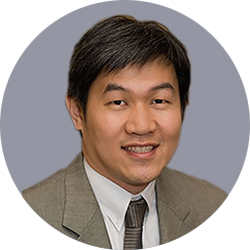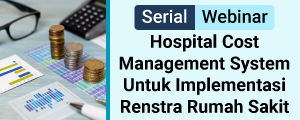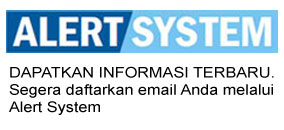Webinar
Scaling up Health Equity and Innovative Solution for UHC in South East Asia
Community of Practice for Health Equity
December 12, 2019
![]() Preface
Preface
WHO has clearly stated that universal health coverage (UHC) is not only a health-oriented goal, but also a step to tackle inequity. SDG agenda for 2030 pledging that no one will be left behind and that every human being will have the opportunity to fulfil their potential in dignity and equality. UHC is recognized as a unifying platform for making progress on SDG 3 for health and the aspiration that all people can obtain the health services without suffering financial hardship. It cover promotion, prevention, treatment, rehabilitation and palliative care. In fact, there are contrast findings in the field, where some studies in many countries have shown that the increasing of access and coverage to health care after the introduction of UHC has shown a disparity of health facility access in different socioeconomic group.
Sustaining UHC is challenged by the rise in burden of NCDs and aging of population. In LMIC, this increase in burden of disease is observed without corresponding rapid increases in economic and societal prosperity, as well as in fiscal capacity. The challenges that impact on health systems such as disease outbreaks, natural disasters, conflicts and mass migration, economic crises, epidemiological and demographic transitions, urbanization, food insecurity, climate change, and widening economic disparities. Together with the 4.0 industrial revolution, digitalization of health financing systems, analysis of Big Data has opened new avenues to stop leakages, detect fraud, facilitate payments, and better understand behaviors of people and institutions. Therefore, health financing systems need to be ready to support health service delivery innovations that can improve access, efficiency and quality.
An overview from Indonesia, as it is almost 6 years after national health insurance establised as a new path for UHC, unfortunately unability to achieve equity and justice in providing health services was found. The failure of achieving equity comes from single pooling the financial system of national health insurance. The of private workers contributed highly to financial deficit since they have better access to health service. In contrast for the poor people who do not have access as same as the rich people. Meanwhile, inequity issue also rise from unequal distribution of doctors across Indonesia.
The Philippines is an archipelago in South-East Asia with an ethnically diverse population of more than 100 million, scattered over 600 inhabited islands. About half of the population now lives in cities, of which almost half live in slums. The country is in the midst of an epidemiological ‘dual burden’. The Philippines has had more than 50 years’ experience with social health insurance and in 1995 established PhilHealth, the country’s national health insurer. At present, about 93 million of a total population of 104 million are covered by PhilHealth. Although access and utilization of health care is
only one of several factors contributing to health equity, in fact poor households have been the lowest users of health services, with poor regions and the poorest income quintiles lagging behind.
The establishment of universal coverage in 2002 enabled Thailand to provide health coverage to the whole Thai population of 66.3 million persons. Every Thai citizen is now entitled to essential health services at all life stages. On the other side, noncommunicable diseases and behavioural factors continue to be a burden of life and on health-care costs. Beside, poor enforcement of road, vehicle safety laws, and air pollution are still a struggle for Thailand. These challenges place a strain on health-system resources that are the foundation of UHC sustainability.
This webinar will provide us to discuss UHC implementation and challenges among South East Asia countries on the situation and concerns related to health equity. Then, what does it take to scale up health equity and innovative solution for UHC in the next decade.
![]() Purpose
Purpose
- Understanding UHC implementation and challenges related to health equity.
- Discussing innovative solution for social responsibility and equity.
- Promote virtual discussion forum for equity practitioners (Community of Practice in Health Equity).
![]() Place and Date
Place and Date
 Day and date : Thursday, 12th December 2019
Day and date : Thursday, 12th December 2019
Time : 09.00 – 10.30 am (GMT +7)
Place : Center for Health and Policy Management (CHPM), Research and Development Building Faculty of Medicine, Public Health, and Nursing, jalan Medika 1 Jogjakarta, 55281
Phone : 62 274 549425
Link Webinar : https://attendee.gotowebinar.com/register/716289347744100099
Webinar ID : 394-985-163
![]() Targeted Audience
Targeted Audience
- Ministry of Health.
- Provincial and District Health Offices.
- Lecturers.
- Students.
- Researchers.
- Health equity practitioners.
![]() Resource Persons
Resource Persons
Speakers
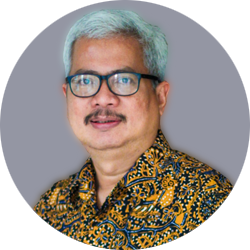
Director of HPM Department, Faculty of Medicine, Public Health, and Nursing, UGM

Beverly Ho
Senior Equity Initiative Fellow
Expert Discussant
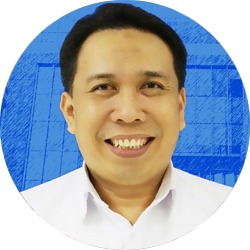
Andi Afdal
Deputy Director of Strategic, Planning, and Information Technology, BPJS Kesehatan
Moderator
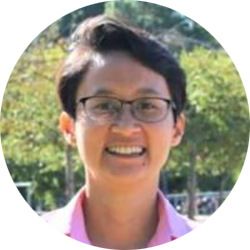
Tiara Marthias
Senior Equity Initiative Fellow
![]() Detailed Rundown
Detailed Rundown
| Time | Topics | Resource Person |
| 09.00 – 09.05 | Opening remark | dr. Tiara Marthias, MPH |
| 09.05 – 09.25 |
International Experience in UHC Progress and Challenges in Phillipine |
Beverly Ho, MD, MPH |
| 09.25 – 09.40 |
UHC Implementation and Challenges in Indonesia |
Prof. dr. Laksono Trisnantoro, M. Sc, Ph. D |
| 09.40 – 10.20 | Expert Discussants and open discussion | Piya Hanvoravongchai, MD, M. Sc, Sc. Ddr. Andi Afdal Abdullah, MBA, AAK |
| 10.20 – 10.30 | Closing remark and conclusion | dr. Tiara Marthias, MPH |
![]() Information
Information
The Equity Initiative Program
Program of CMB Foundation
http://www.equityinitiative.org/
Center for Health and Policy Management Contact Person for registration :
Maria Lelyana
Email: [email protected]
Mobile Phone/WA : +62 811 101 9077
Telp/Fax :+62274-549425 (hunting)


